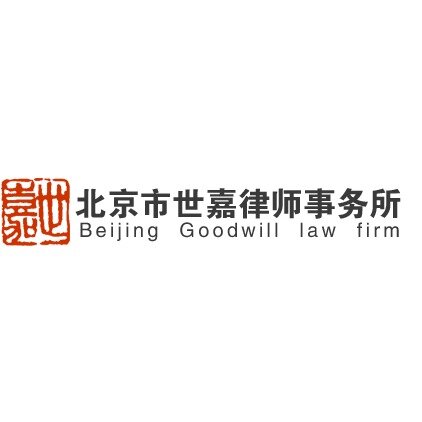Best Climate Change Law Lawyers in Beijing
Share your needs with us, get contacted by law firms.
Free. Takes 2 min.
List of the best lawyers in Beijing, China
About Climate Change Law in Beijing, China
Climate Change Law in Beijing is an evolving legal field that addresses the reduction of greenhouse gas emissions, adaptation to climate impacts, and the regulation of activities that contribute to climate change. As China moves towards its national goals of carbon peaking and carbon neutrality, Beijing plays a leading role in implementing ambitious environmental policies. Local regulations in Beijing build upon national laws, with a focus on improving air quality, supporting green industries, and encouraging public participation in climate action.
Why You May Need a Lawyer
Legal counsel in Climate Change Law can be essential for a range of individuals and entities. Common scenarios include disputes arising from environmental regulations, compliance challenges for businesses, regulatory enforcement actions, navigating emission trading schemes, or understanding your rights and obligations under new climate policies. Whether you are a company, non-governmental organization, property owner, or concerned citizen, a legal professional can help clarify laws, negotiate with authorities, or defend your interests in administrative or judicial proceedings related to climate legislation.
Local Laws Overview
The legal framework for climate change in Beijing is shaped by both national laws, such as the Environmental Protection Law and the Energy Conservation Law, and Beijing’s local regulations. Beijing has introduced its own mandates for carbon emission reduction, renewable energy use, and energy efficiency in buildings. Key regulations include:
- Beijing Municipal Regulations on Ecological and Environmental Protection
- Beijing Municipal Carbon Emission Trading Pilot Program
- Policies on clean energy vehicles and green building codes
Beijing’s Emission Trading Scheme is one of the most advanced in China, setting caps on carbon dioxide emissions for certain industries. Entities that exceed their allowances must buy credits from others or face penalties. Businesses are obligated to regularly report their emissions and ensure compliance. There are also local initiatives to encourage citizens and organizations to participate in green actions and public supervision.
Frequently Asked Questions
What is the purpose of Climate Change Law in Beijing?
The law is designed to limit greenhouse gas emissions, promote clean energy and efficiency, support adaptation to climate change, and help Beijing meet its environmental and sustainability goals.
Who needs to comply with Beijing’s climate regulations?
Compliance is required for key industries such as power generation, manufacturing, construction, and transportation companies, but individuals and smaller entities may also have obligations under specific rules or programs.
What are the penalties for violating climate change laws in Beijing?
Penalties can range from administrative fines and business license suspensions to public disclosure of violations and legal orders to remedy harm to the environment.
How does the Emission Trading Scheme work in Beijing?
The scheme sets emission caps for qualified enterprises. Companies that emit less than their cap can sell unused allowances, while those that exceed their limits must purchase allowances or pay fines.
Can foreign companies operating in Beijing be affected?
Yes, foreign-invested enterprises in regulated sectors must comply with the same climate laws as domestic companies.
What support is available for businesses to comply with these laws?
Beijing offers technical guidance, government subsidies for green upgrades, clearer reporting systems, and information sessions to help organizations meet their legal obligations.
Are citizens allowed to participate in climate change governance?
Yes, there are mechanisms for public reporting of environmental violations, as well as opportunities for feedback and participating in environmental impact assessments.
How do climate change regulations impact real estate and construction?
Strict green building standards apply, requiring energy-efficient design, renewable energy use, and materials that reduce carbon footprints for new developments and renovations.
Is legal assistance needed for emission reporting?
While not always mandatory, legal guidance is highly recommended for accurate and compliant emissions reporting, especially for larger enterprises subject to audits or government inspections.
What should I do if I am accused of violating climate laws?
Consult an experienced climate change lawyer immediately to understand your rights, evaluate any alleged violations, and represent your interests in administrative proceedings or court if necessary.
Additional Resources
For more information and practical support related to Climate Change Law in Beijing, consider consulting the following:
- Beijing Municipal Ecology and Environment Bureau
- Ministry of Ecology and Environment of the People’s Republic of China
- China Carbon Emissions Registry
- Local environmental protection NGOs and legal aid centers
- Trade associations for energy, transportation, or construction sectors
Next Steps
If you need legal advice or support regarding Climate Change Law in Beijing, start by gathering relevant documents such as notices from authorities, compliance reports, or business registration information. Consider scheduling a consultation with a law firm or individual lawyer with expertise in environmental or energy law in Beijing. Prepare questions about your specific situation and seek clarity on how the laws apply to you or your organization.
Act promptly if you are facing regulatory deadlines, enforcement actions, or disputes. Early intervention can often resolve issues more efficiently, minimize penalties, and ensure sustainable compliance with Beijing’s dynamic climate law landscape.
Lawzana helps you find the best lawyers and law firms in Beijing through a curated and pre-screened list of qualified legal professionals. Our platform offers rankings and detailed profiles of attorneys and law firms, allowing you to compare based on practice areas, including Climate Change Law, experience, and client feedback.
Each profile includes a description of the firm's areas of practice, client reviews, team members and partners, year of establishment, spoken languages, office locations, contact information, social media presence, and any published articles or resources. Most firms on our platform speak English and are experienced in both local and international legal matters.
Get a quote from top-rated law firms in Beijing, China — quickly, securely, and without unnecessary hassle.
Disclaimer:
The information provided on this page is for general informational purposes only and does not constitute legal advice. While we strive to ensure the accuracy and relevance of the content, legal information may change over time, and interpretations of the law can vary. You should always consult with a qualified legal professional for advice specific to your situation.
We disclaim all liability for actions taken or not taken based on the content of this page. If you believe any information is incorrect or outdated, please contact us, and we will review and update it where appropriate.

















